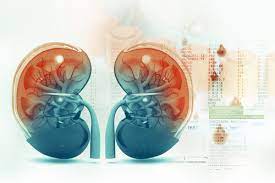Kidney transplants are life-saving procedures that can provide a new lease of life for individuals suffering from kidney failure. While it may be disheartening to think about children facing such a challenging situation, the reality is that kidney disease can affect anyone, regardless of age.
In this article, Dr. Reetesh Sharma, Director & Head – Nephrology & Kidney Transplant Medicine, Asian Hospital Faridabad, will help us delve into the world of pediatric kidney transplantation, shedding light on the causes, challenges, and outcomes associated with this complex medical intervention.
Understanding Pediatric Kidney Disease
Kidney disease in children can be congenital (present at birth) or acquired during childhood. Congenital conditions, such as polycystic kidney disease or renal dysplasia, may lead to kidney failure. Acquired conditions can result from infections, autoimmune disorders, or hereditary factors. Early detection and timely intervention are crucial in managing pediatric kidney disease.
Treatments such as medication, dialysis, or dietary changes can alleviate symptoms, but in severe cases, a kidney transplant may be the best option to restore a child’s health and quality of life and importantly growth as well.
The Importance of Donor Compatibility
Finding a compatible kidney donor for a child is essential for a successful transplant. Relatives, such as parents, grandparents or siblings, are often the first choice due to a higher likelihood of compatibility. However, in cases where a family member is not a suitable match, the child may be placed on a waiting list for a deceased donor transplant program offering hope to many children in need.
Challenges and Considerations in Pediatric Kidney Transplants
Performing a kidney transplant in a child presents unique challenges. Pediatric patients require specialized surgical techniques, as their bodies are smaller and still growing. The child’s ongoing growth and development also influences the selection of an appropriate donor kidney.






